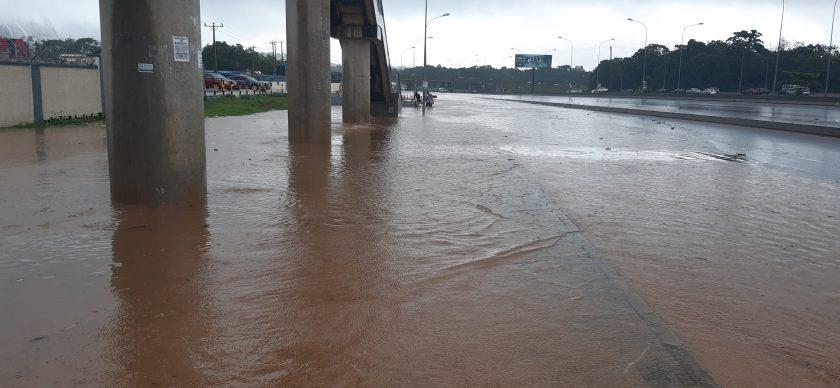Stakeholders in the built environment have emphasized the critical role of effective urban planning and infrastructure design in reducing the devastating impacts of flooding.
This comes in light of recent concerns about the increasing frequency and severity of floods in Nigeria and their catastrophic effects on communities and the economy.
Nwosu Obinna, Principal Partner of CN Architects Ltd, highlighted the significant financial losses caused by flooding, labeling it one of the most destructive natural disasters impacting the built environment. Speaking with our source, Obinna stressed the need for comprehensive flood risk management strategies, including flood defenses such as levees, flood walls, and green spaces that can absorb excess floodwaters.

“Urban planning and infrastructure design are essential in mitigating the effects of flooding,” Obinna stated. “Building codes must mandate the use of elevated structures, flood-resistant materials, and proper drainage systems to safeguard properties and infrastructure.”
READ ALSO: NIHSA Warns of Imminent Flooding in Niger State’s Riverine Areas
Obinna pointed to the devastating floods in Nigeria in 2022, which led to an estimated economic loss ranging from $3.79 billion to $9.12 billion, according to the National Bureau of Statistics. He called for the Federal Government to implement policies that promote insurance and risk transfer, such as subsidies, tax incentives for flood-resilient development, and public-private partnerships for affordable coverage.
“Addressing climate change by reducing greenhouse gas emissions and creating wetlands for natural flood defenses is also crucial,” Obinna added, underscoring the need for comprehensive strategies in urban planning, infrastructure development, and insurance schemes to mitigate the financial losses caused by flooding.
READ ALSO: Nine-Hour Rainstorm Causes Severe Flooding in Makurdi
Engineer Babatunji Adegoke also weighed in, emphasizing the importance of adhering to planning laws and regulations to prevent flooding. He argued that properly enforced regulations could ensure that infrastructure is designed with flood resilience in mind, roads are constructed to withstand heavy rainfall, and developments are situated away from flood-prone areas.
“Well-planned and regulated development is essential for creating flood-resilient communities,” Adegoke said. He advocated for the provision of adequate drainage facilities, regular maintenance, and the use of permeable construction materials to allow rainwater to percolate, thereby reducing flood risks.
READ ALSO: NiMET Alerts Kano Residents on High Risk Flooding in 14 LGAs
Adegoke also emphasized the importance of raising public awareness about responsible behavior, such as avoiding the blockage of drainage systems with waste, and recommended penalties for non-compliance. He highlighted the need for real-time traffic information during heavy rainfall and the use of flood-resistant materials in road construction to enhance durability.
“Finally, developing and implementing comprehensive emergency management and response strategies is essential for adequate flood planning,” Adegoke concluded, stressing the importance of proactive measures to address flood risks and protect communities.



